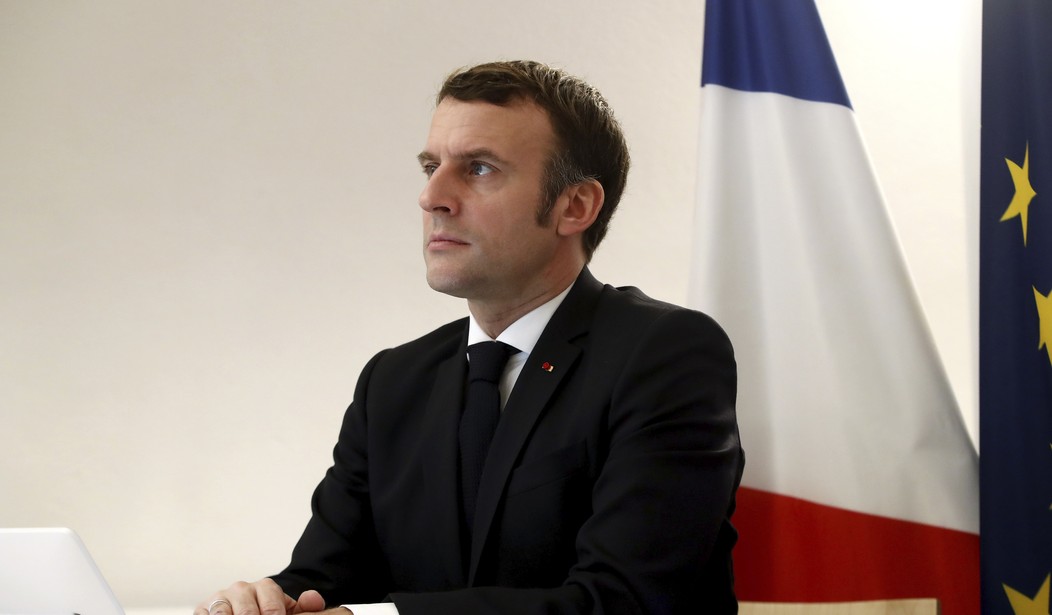Last April, French President Emmanuel Macron won a surprisingly easy victory over Marine Le Pen’s right-wing National Rally party. Macron believed that a large parliamentary majority would fall in his lap after the elections that concluded this weekend.
Macron’s centrist alliance entered the parliamentary election in a strong position — and then decided not to campaign very hard. The catastrophic results have upended French politics and threatened the stability of the government.
Le Pen’s right-wing party gained 89 seats — ten times more than they won in the previous parliamentary elections in 2020. Meanwhile, on the radical left, the anti-NATO, anti-EU, anti-capitalist France Unbowed won 73 seats. Together, the two political extremes were able to deny Macron a majority by 44 seats — an unprecedented shortfall. It’s not clear where Macron can find the votes to win the traditional “no confidence” vote that will be held next month.
Jean-Luc Mélenchon heads the Nupes coalition composed of his hard-left France Unbowed party as well as the Socialists, Greens, and Communists. Growing out of the yellow vest movement from 2018, they are not likely to do any favors for Marcon.
A possible solution could be found in the center-left Les Républicains (LR) party. With 64 deputies, they have a sizable wing that agrees with Macron on some of his domestic agenda. But they also have a large minority of members who despise Macron, and they feel that being too closely associated with him will damage their own party.
To avoid an immediate crisis, the LR deputies may agree at least to abstain and allow the confidence motion to pass early next month.
Beyond that, how France will be governed, and by whom, for the next five years is anyone’s guess. Sources close to Macron suggested to the French media that he may be tempted to call another election. On one reading of the French constitution, he must wait 12 months. Another interpretation suggests he could do so whenever he chooses.
An already perilous situation for the president is complicated by the fact that he lost two of his most experienced parliamentary operators yesterday. Both the outgoing National Assembly president (speaker) Richard Ferrand and Macron’s Renaissance party parliamentary leader, Christopher Castaner, lost their seats.
The last French president to face a similar situation was Francois Mitterand. He devised a unique method of governing known at the time as a “stereo majority” where Mitterand would cobble together different majorities on different issues. It was a perilous way to run a government given its inherent instability.
The only real solution for Macron is some kind of permanent governing majority.
His people are confident that around 20 to 30 of the new LR deputies would be ready to join a formal coalition or, at least, support the government on key business and legislation. Unfortunately, 20 to 30 extra votes are not enough.
Some voices in the LR, such as former President Nicolas Sarkozy and the former party leader Jean-François Copé are calling for a permanent governing “pact” with Macron. The present LR leader, Christian Jacob, says that his party will “remain in opposition” but hints that they may be prepared to support Macron from time to time.
Jacob is, however, about to stand down as LR leader. He could well be replaced by someone from the hard-line, anti-Macron wing, such as the president of the Auvergne-Rhône-Alpes region, Laurent Wauquiez.
The surprising strength of Le Pen’s National Rally should be seen in context with the explosive growth of the far left and as part of the unraveling of the center in France, which is fracturing much like the United States and some other western nations.
Sadly, Macron is not the person with the political skills or natural gifts to heal the rifts in French society. It may be that no one can.










